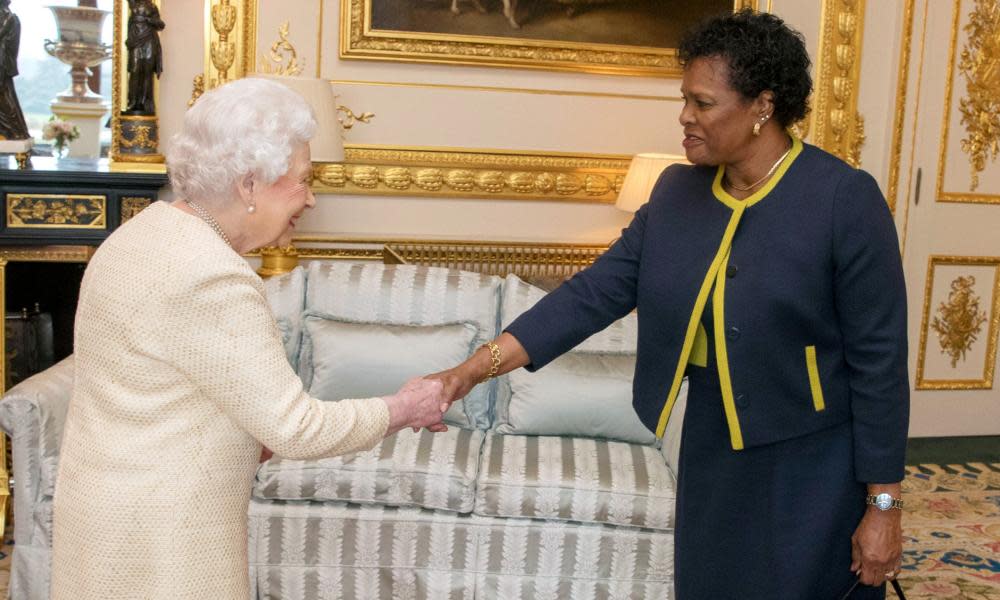Barbados elects first president as it prepares to drop Queen as head of state

- Oops!Something went wrong.Please try again later.
- Oops!Something went wrong.Please try again later.
Barbados has elected its first president with just weeks to go until the Caribbean island becomes a republic and ceases to recognise Queen Elizabeth as its head of state.
The island’s governor general, Dame Sandra Mason, was elected almost unanimously by the former British colony’s parliament on Wednesday, with only one member declining to vote.
Mason, a 72-year-old judge and former ambassador, will be sworn in on 30 November, the 55th anniversary of her country’s independence from Britain in 1966.
The prime minister, Mia Mottley, hailed what she called a historic landmark for the island of about 290,000 inhabitants. “How can anyone deny the rightness of the moment?” Mottley said, according to the Barbadian newspaper the Nation.
“Dame Sandra has been and continues to be an exemplary daughter of the soil,” read an editorial in Barbados Today, although the newspaper said the momentous occasion had been overshadowed by “mounting fears, division, and anxiety among Barbadians about the Covid-19 pandemic”.
Barbados announced its decision to part company with the monarchy in September 2020 amid an intensifying global debate on the malign legacy of colonialism and racial injustice.
Speaking at the time, Mason argued that the time had come for Barbados “to fully leave our colonial past behind”. “Barbadians want a Barbadian head of state. This is the ultimate statement of confidence in who we are and what we are capable of achieving,” she said, reading comments prepared by the prime minister.
Related: Long live Barbados as a republic, soon to be free of tarnished 'global Britain' | Guy Hewitt
Barbados is not the first Caribbean country to forsake the Queen. Guyana did so in 1970, four years after gaining independence from Britain, and was followed by Trinidad and Tobago in 1976 and, two years later, Dominica. Barbados may also not be the last. Its decision to become a republic has amplified a long-running debate in Jamaica over whether it should also turn away from the monarchy.
Mottley said she hoped the island’s first president would prove “a mobilising force and a unifying force to allow us to fight battles that hitherto in an independent Barbados we have not had to fight”.
Her election was also a blow to misogyny. “I know only too well the journey that it has taken for women to come to any position that they did not hold before,” Mottley said.

